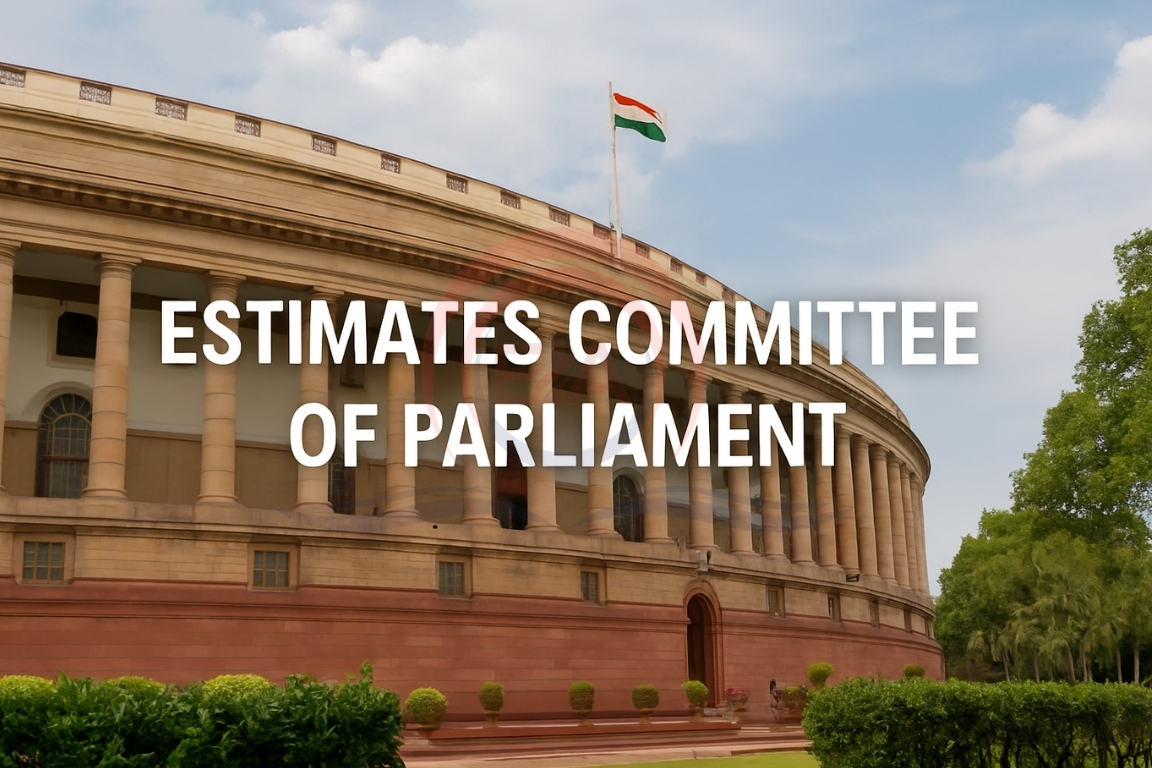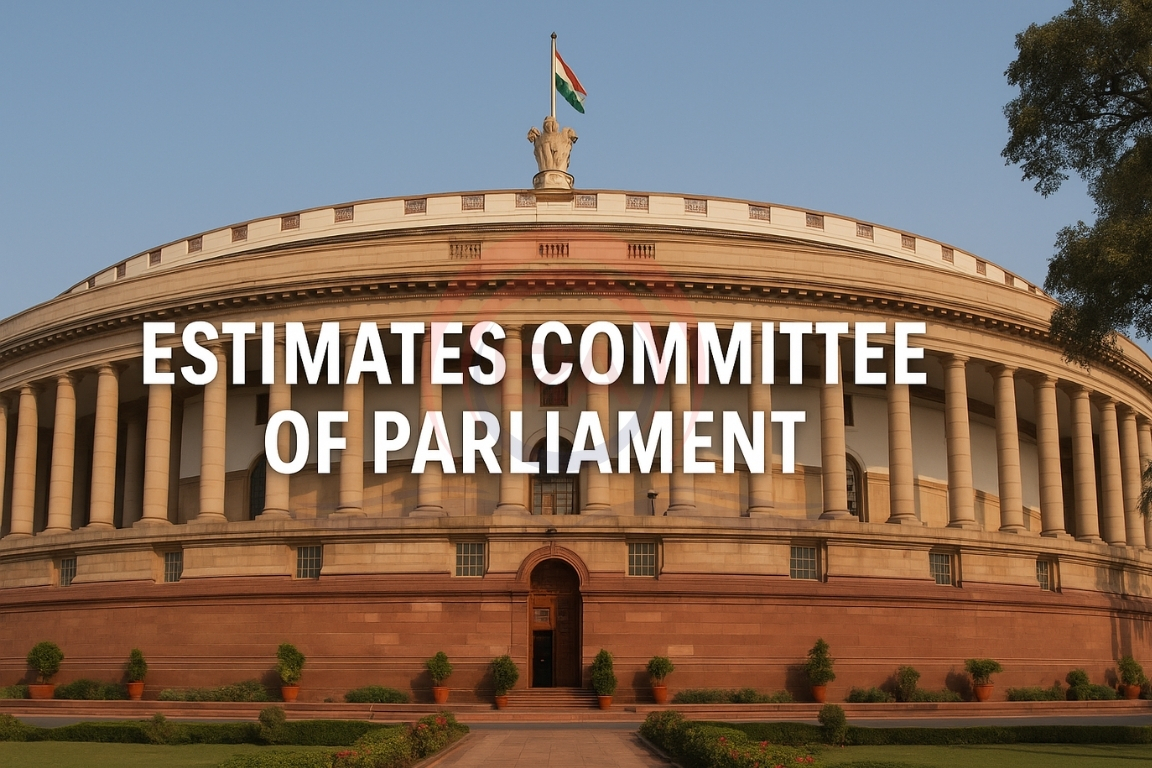The Lok Sabha Speaker recently inaugurated a national conference to commemorate the 75th anniversary (Platinum Jubilee) of the Parliamentary Estimates Committee at Mumbai’s Vidhan Bhavan.
Estimates Committee
- First established in 1950 as a financial committee of Parliament.
- Comprises 30 members, all elected from the Lok Sabha (no Rajya Sabha member).
- Members are chosen annually by the Lok Sabha.
- Ministers cannot be part of the Committee. If a member becomes a minister later, they are automatically disqualified.
- The Speaker of Lok Sabha appoints the Chairperson from among the members.
Functions of the Estimates Committee
- Reviews the budget estimates of ministries/departments.
- Suggests how to reduce expenses, improve administrative efficiency, and reform systems without changing policy direction.
- Can recommend alternative policies to improve performance and cut costs.
- Verifies whether the allocated funds are used properly and effectively.
- Recommends how budget estimates should be presented for better understanding.
Working of the Committee
- After formation, the committee selects estimates from specific ministries or departments for detailed review.
- It can examine any issue of special interest that arises or is referred by the Speaker or the House.
- May form Sub-Committees or Study Groups for deeper analysis.
- Findings and suggestions are submitted as Reports to the Lok Sabha.

Follow-up Mechanism
- Concerned ministries must respond to the committee’s suggestions within six months (or as directed).
- These responses are reviewed and compiled into an Action Taken Report, which is also presented to the Lok Sabha.
- Final government responses are tabled in the form of Statements.
Limitations
- The committee does not review Public Sector Undertakings (PSUs) that fall under the Committee on Public Undertakings.
- It is not mandatory for the committee to study the entire annual budget.
- Even if the committee hasn’t submitted a report, Demands for Grants can be voted on.
Conclusion
The Estimates Committee plays a key role in ensuring transparency and efficiency in government spending. As it marks 75 years of service, its role in budget oversight and financial discipline remains vital for parliamentary accountability.





